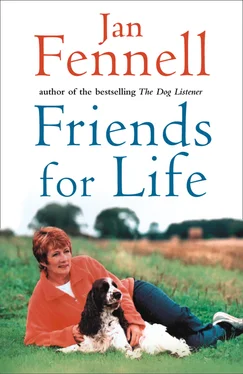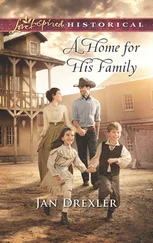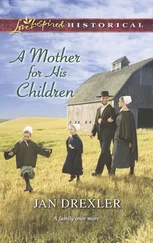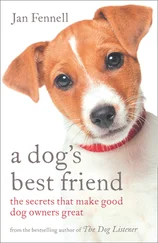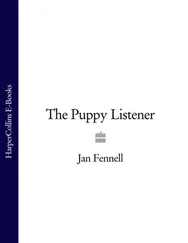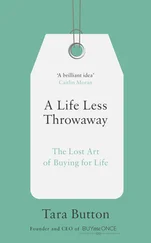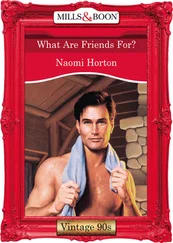My father worked as a driver. When I was a little girl he drove the No. 73 and the No. 11 bus through central London. By day he was a pretty ordinary guy, but by night he was transformed. He was a handsome man and in the evening he ‘trod the boards’, usually with his brother Bill. The brothers had inherited much of their talent from their father’s family, who worked in Variety and could count Marie Lloyd as a family friend. In the family tradition they also mixed in a bit of vaudevillian playfulness. Their funniest sketch was something called ‘The Ballsup Ballet’, a spoof of the Bolshoi Ballet in which they dressed up in tutus. Singing, however, was their strong suit.
Dad had a wonderful voice. He would walk into a pub or a club and the shouts would go up straight away: ‘Come on Wally, give us a song.’ He used to do Bing Crosby and Maurice Chevalier numbers and had entertained dreams of making it as a professional singer. But when he had gone to see a West End agent he had been knocked back. ‘There’s already one Bing Crosby and we don’t need another one,’ he was told. Within a year a British singer called Michael Holliday, who Mum said was nowhere near as good as Dad let alone Bing Crosby, became a huge hit. That hurt Dad badly, I think.
During their courtship, Nona used to go to his concerts and he would sing a song from the musical Singin’ in the Rain called ‘Beautiful Girl’. I think it began: ‘You’re a gorgeous picture …’ Such attention was music to my mother’s ears. She thought she’d finally found the crock of gold at the end of the rainbow. She fell hopelessly in love with him.
They were married in 1947. By the following year, I had joined them in the small upstairs flat they rented in Rosaline Road in Fulham, south-west London.
The Fulham I grew up in bears little resemblance to the trendy, cosmopolitan community it is today. One or two Greek shopkeepers apart, the area had few immigrants. The West Indian and Asian influxes of the late 1950s and 1960s had yet to happen.
Times were generally hard. Large parts of the area were rubble-strewn wastelands from the Blitz. We all lived in flats, most of them cramped. Ours consisted of a sitting room, a tiny kitchen, a toilet and one bedroom. It was the same when we moved to a home at the Clyde Flats on Rylston Road when I was three. For the first ten years of my life, my single bed was squeezed into a corner alongside my parents’ double divan in a sleeping space ten feet square. Luxurious it wasn’t. I understand now that those were difficult times. I also know a lot more about my parents’ lives and the pressures they were under than I did then.
The war and its effects dominated everyone’s life, of course. Rationing was still in existence, although if I’m honest, I was never aware of any real hardship in that sense. The most vivid reminder of the events of 1939 to 1945 lay out on the streets. You only had to walk outside our front door to see the damage the Blitz had inflicted. There were open bomb sites on almost every street in Fulham, including our own. As a child, of course, I had no concept of how these strange spaces had come to exist in the midst of such a built-up area. All I knew was they made great playgrounds.
For my generation the war was simply something that people banged on about a great deal. For the generation who had survived it, however, it had been a life-changing experience. And for men like my father the peace was almost a greater challenge. He found it hard readjusting to work. He had a succession of jobs, all of them involving driving but none of them well-paid by any stretch of the imagination. For my mother too, the end of the war brought her back to the grinding reality of life. By the time I was three or four she had left the factory for a clerical job with a wealthy local businessman, Sydney Smith.
They didn’t have much money but they remained very social animals. Much of their amusement revolved around family – my father was one of eight children, my mother one of four, so there were lots of aunts and uncles around to visit. Everyone seemed to have a piano in their house. Singalongs and performances were very much part of the family’s way of letting their hair down.
My father’s music provided another escape from the daily grind. When I was three or four I was incorporated into the band my dad had now formed with Uncle Bill, his two kids, Maureen and Barry, and his older sister, Auntie Ivy, on piano. We used to do shows at old people’s homes, village halls and places like that. I can remember travelling to suburbs like Pinner, though I can’t recall how the act was billed.
We used to bring the house down with versions of things like ‘Carolina in the Morning’, ‘Singin’ in the Rain’, ‘Que Sera Sera’ and a song called ‘Get Out Get Under the Moon’. Dad and Uncle Bill were good at slapstick too. They would pretend to be acrobats, but would deliberately mistime their stunts so that they continually bumped into each other. They also loved dressing up. Uncle Bill performed a blackface version of A1 Jolson singing ‘Mammy’. They also used to do a variation on the popular ‘Egyptian Sand Dance’ routine. They would dress up in costume for it, even putting on panstick colouring. I’ll never forget the first time they did it. My father had gone to town on the make-up and he’d plastered his hair in Brylcreem and combed it down over the front of his face. He looked great, totally crazy. My mother was in the audience; she asked one of her friends: ‘Who the hell is that?’
‘It’s your Wal, Nona,’ she replied.
My mother nearly choked.
Our motto was to make them laugh, make them sing and make them cry occasionally too. It was my job to encourage the last of these in the routine that eventually became my major contribution to the show.
When he wanted to change the atmosphere my father used to sing a sentimental song called ‘Daddy’s Little Girl’. It was a lovely, lyrical song that showed Dad’s voice off to the full. As he started singing it would be the cue for me to stand up in the audience, walk to the stage and sit there while he sang this tribute to me. Audiences loved it, naturally. It was tear-jerking stuff. If only I had felt as if I was Daddy’s Little Girl.
It was inevitable that the first dog I called my own existed only in my imagination. My mother disliked animals intensely. As far as she was concerned dogs were messy, smelly creatures that moulted, left unpleasant odours and generally spoiled her spotless home. She had an uncanny ability to sense when I’d been within touching distance of a dog. It was as if she was equipped with a special radar. ‘You’ve been playing with those dirty creatures again,’ she’d scold me. If there was a golden rule in our home it was that my mother got her way. And so for the first fourteen years of my life, denied a dog of my own at home, I made friends with other people’s pets – and made do with an imaginary one of my own.
I can still picture her now. She was a lovely, long-haired little thing, with huge, doe-like eyes. Whenever she saw me her ears would prick up, her tail would wag and her face would break into a broad smile. I sometimes wonder whether Walt Disney had adopted her as his own imaginary friend. She could have been drawn by him.
Sometimes I called her Lady, more often than not I simply referred to her as My Little Dog. She used to appear whenever I felt hurt or lonely. As my childhood progressed, that meant she was an almost constant companion.
With my mum and dad it was always as if the world revolved around the two of them. I was filled with a sense that I somehow didn’t fit into their plans – or indeed anyone else’s.
We’d go to places then I’d be left sitting in a corner, with nobody to talk to. On holiday my mum would begin suggesting she and my dad should go off somewhere or other then say: ‘Oh we can’t, we’ve got Janice.’ They’d always want me out from under their feet. I was a nuisance because I stopped their fun. I was always made to feel I was in the way.
Читать дальше
